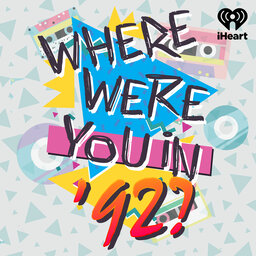The Year of Scandal, Part 1: Ice-T and Body Count’s “Cop Killer”
Rapper Ice-T faced major backlash after he and his heavy-metal side project Body Count released their dark, menacing track “Cop Killer.” They’d been performing the song for a year before it appeared on their 1992 debut album, but the record landed in stores just weeks before four police officers were acquitted in the trial for the beating of Black motorist Rodney King and riots over the verdict erupted in the streets of Los Angeles.
Police organizations accused “Cop Killer” of inciting violence across the country, and it became an ideal target for right-wing politicians, including President Bush and Vice President Dan Quayle, who aimed to strike down anything that challenged “family values.” With the FBI, the IRS, and the NRA on his back, Ice-T suddenly found himself at the center of a debate over the limits of freedom of speech.
In this episode, we explore the origins of “Cop Killer,” the outrage it sparked in 1992, and how Ice-T and his label reacted to the fallout. With special guests Ice-T and Body Count guitarist Ernie C.
In 1 playlist(s)
Where Were You in '92?
1992: The year of big-butt anthems, achy-breaky hearts, and Madonna’s Sex book. The year that Boyz I…Social links
Follow podcast
Recent clips

Pop Music Takes on AIDS
56:20

Bonus Episode: Tori Amos Revisits ‘Little Earthquakes’ (The Full Interview)
51:14

Arrested Development: Hip-hop’s Lost Poets
52:55
 Where Were You in '92?
Where Were You in '92?